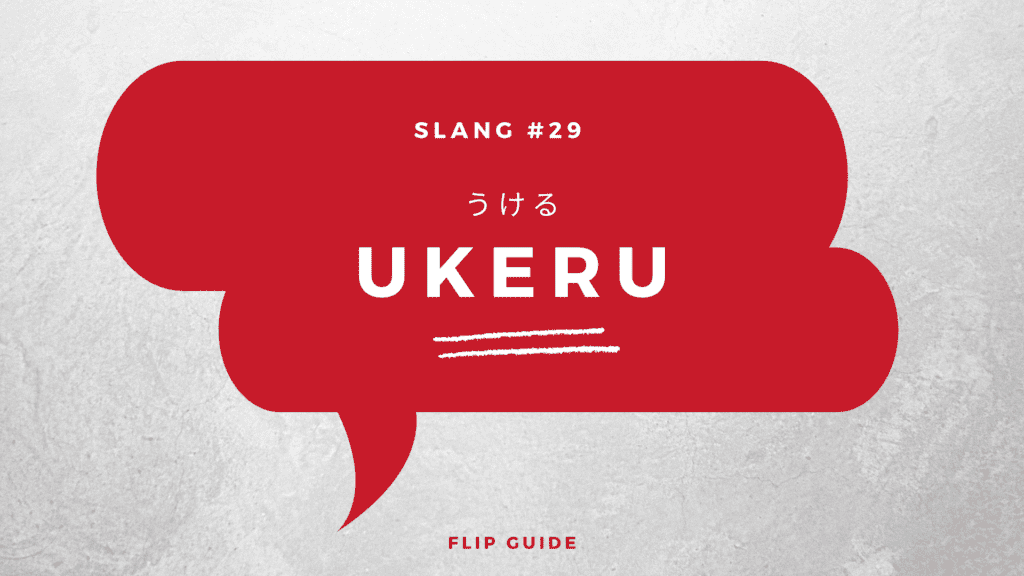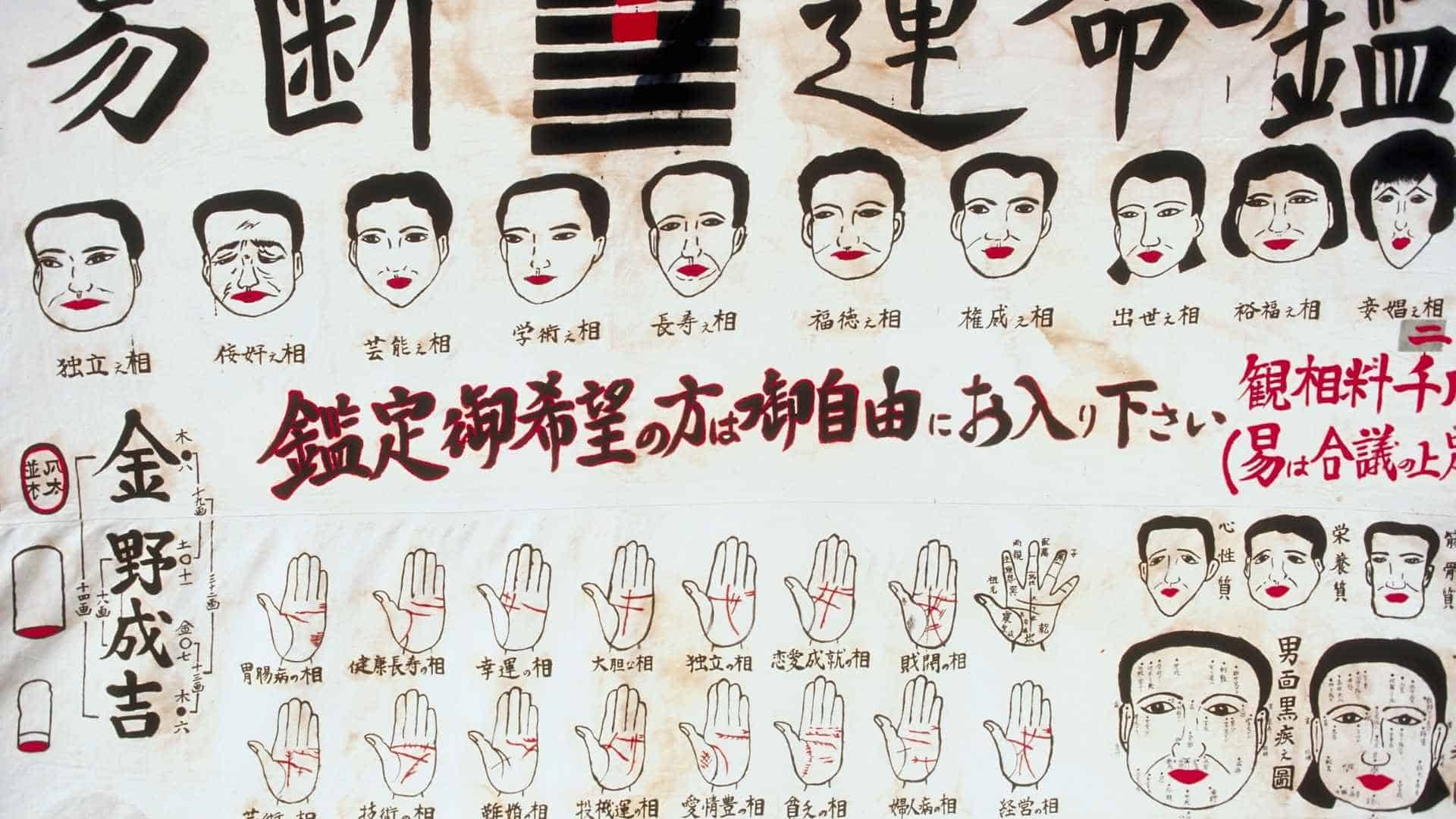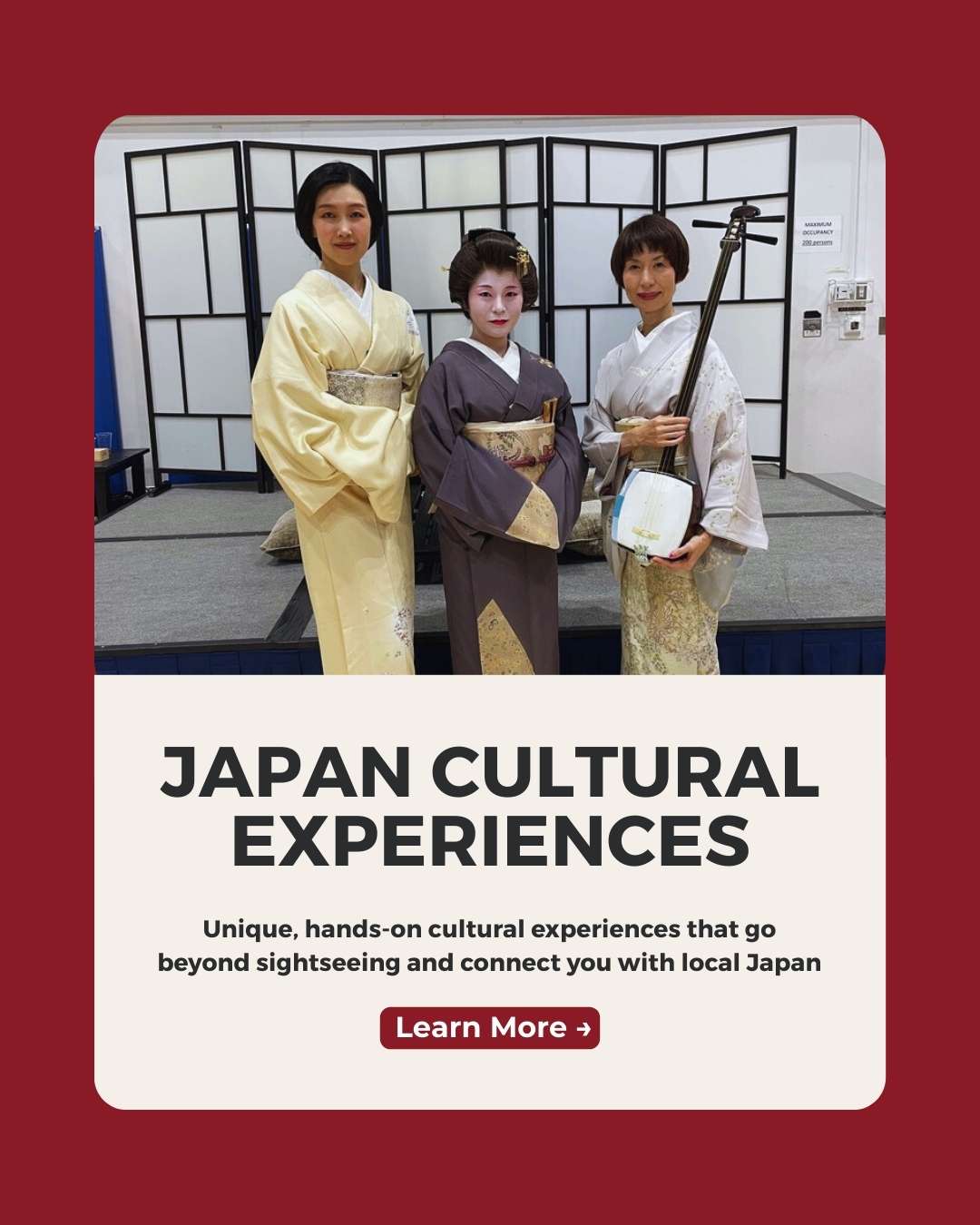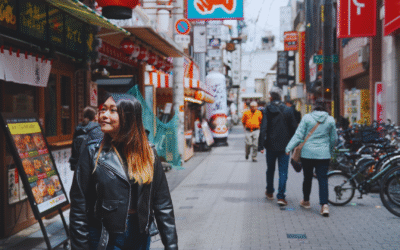Japanese slang words are constantly changing and evolving. If you’re studying Japanese through textbooks or in classrooms, you’ll probably never come across these words. In this blog post, you’ll learn some of the most popular and most commonly-used slang words in Japan, especially by the younger Japanese crowd. Learn them so you can confidently understand your local friends and maybe even use them yourself!
Let us know in the comment section which of these common Japanese words and slangs you like and might start using right away!
Here are 30 most common Japanese slangs. Let us know in the comments which one you find most interesting!
30 Japanese Slang Words to Help You Sound Like a Pro
1. まじで, Majide

A: I partied till 5am last night even though I had an important business meeting today.
B: Majide (For real)?!
‘Majide’ is a very popular Japanese word. “Majide” or just ‘maji’, translates to ‘really’ or ‘for real’. You can use it as an expression on its own, or combine it with an adjective. For example, you could say your ramen is “maji oishii (まじおいしい)”, which means “really delicious”.
2. 本当, Hontou

A: It’s been months since I went on a date.
B: Ah, hontou (Oh, really)?
A: Wow, your dog is hontou ni kawaii (really cute)!
Another common Japanese word is ‘Hontou’. It means the same thing as ‘majide’ but is gentler and more humble, where ‘majide’ is a bit more abrasive. In the example above, using ‘majide’ instead of ‘hontou’ may make the other person feel bad, as though not having been on a date in so long is a horrifying concept to you.
You can use ‘hontou’ as an expression, and ‘hontou ni’ to combine with an adjective. Due to its calmer nature, it’s used in both casual and formal situations.
3. 確かに, Tashikani

A: This karaoke joint is a bit expensive…
B: But they let you bring in your own drinks!
A: Ah, tashikani (Oh, that’s right)!
‘Tashikani’ means ‘true’ or ‘right’, and can be used in both casual and formal situations. It’s used in everyday language to agree with the other person or when you come to a realisation.
4. 賛成, Sansei

A: Girls’ night out tonight, no flirting with guys! Sansei (Agreed)?
B: Sansei (Agreed)!
‘Sansei’ means ‘agreed’, “I agree”, or “I’m in”. It’s usually used to agree with a suggestion or idea.
5. ガチ, Gachi

A: This is gachi (legit) delicious!
‘Gachi’ is a slang word that has popped up recently and it means “for real” or ‘legit’. It is used among friends to emphasise a fact or an opinion.
6. めっちゃ, Meccha

A: Those boots are meccha kakkoii! (super cool!)
This term originated in the Kansai region but is now used throughout Japan. It’s used mainly among friends and means ‘very’ or ‘really’, and is similar to ‘majide’ and ‘hontou’. It’s more commonly used amongst girls as it sounds cuter than the abrasive ‘majide’ and the gentle ‘hontou’.
7. 超, Chou

A: That girl is chou sekushii (super sexy)!
A: This sushi is chou oishii (super delicious)!
‘Chou’ is used with an adjective, and translates to ‘super-’ or ‘extremely’. It usually expresses great enthusiasm for something. It’s a very stylish slang word that will make you sound chou kakkoii (super cool)!
8. ヤバイ, Yabai

A: I am going to chug this beer, whiskey and tequila shot.
B: Yabai (Damn)!
‘Yabai’ is one of the most popular Japanese words. It literally means ‘dangerous’, but it’s used for everything, in both positive and negative ways. Think of it as the English ‘damn’, ‘daaaayum’, or ‘shiiiiiit’.
9. ファイト, Faito

A: I’ve got a big basketball game coming up…
B: Faito (Good luck)!
‘Faito’ is the Japanese pronunciation of the English word ‘fight’, but it doesn’t mean a literal fight with bruised fists and bleeding lips. Rather, it’s used to say ‘good luck’, ‘keep going’, ‘fight on’. It’s used during sports games, competitions, or before someone enters a high-stakes situation like an important business meeting or a school examination.
10. すごい, Sugoi

A: Look at this amazing view.
B: Sugoi (Wow)…
A: I got a promotion!
B: Sugoi (That’s awesome)!
‘Sugoi’ used as an expression means ‘wow’, and as an adjective it means ‘great’ or ‘awesome’.
11. かわいい, Kawaii

A: You look so kawaii (cute) today!
B: Thank you.
A: My husband shed a tear at our wedding.
B: Oh, kawaii (How cute)!
You probably know this one already as it’s one of the most-used Japanese phrases. It means ‘cute’ and people—mostly girls—use it for everything: people, animals, furniture, fashion, even situations.
12. 大丈夫, Daijoubu

A: Do you need a plastic bag?
B: No, daijoubu desu (No, it’s fine).
A: You fell off your bike! Daijoubu desuka (Are you okay)?
B: Daijoubu desu (I’m okay).
“Daijoubu” is a very popular Japanese word. This is an extremely useful phrase that can mean “no thank you”, “it’s okay” or “no problem”.
13. うまい, Umai

A: Try my homemade cookies.
B: Umai (It’s delicious)! You’re really umai (good) at cooking!
You may know that ‘oishii’ means ‘delicious’, and so does ‘umai’, in a more casual way. It can also be used to say someone is skilled or good at something. It’s commonly used by guys.
14. かっこいい, Kakkoii

A: Look at those leather boots, they’re so kakkoii (cool)!
B: Look at the person wearing them, he’s really kakkoii (handsome)!
‘Kakkoii’ just simply means ‘cool’, used to describe someone’s personality, style or appearance. It also means ‘handsome’ or ‘good-looking’, though when used this way, it’s only applicable to guys.
15. いやだ, Iyada

A: Try eating this scorpion. It’s a delicacy in Thailand.
B: Iyada (Ew, no)!
‘Iyada’, or just ‘yada’, expresses disgust and rejection, used commonly when someone is about to be put in a situation they don’t want to be in. It’s usually used by girls and is used very casually.
16. やった, Yatta

A: My package finally arrived! Yatta (yay)!
‘Yatta’ simply means ‘yay’ and is used in Japanese the same way ‘yay’ is used in English. It sounds rather cute and thus is mostly used by girls.
17. めんどくさい, Mendokusai

A: I have to take a train, a plane, a two-hour boat ride, and hike four hours to get to this place? Mendokusai (How troublesome)!
A: My ex keeps calling me! What a mendokusai person.
Fans of the Japanese anime series Naruto will know this word, ‘mendokusai’. It’s the catchphrase of a lazy character who finds everything a bother. It’s translated as ‘troublesome’ or ‘annoying’ and can be used to describe a situation or a person. It’s very casual so use it only with friends and not in formal situations!
18. KY/ 空気読めない, Kuuki Yomenai

A: He wouldn’t leave last night even though it was obvious me and my girlfriend wanted time alone. He’s a KY (dense) person.
KY stands for “kuuki yomenai” which literally translates to “can’t read the air”. It’s used to describe someone who’s rather dense and who can’t take a hint.
19. きもい, Kimoi

A: I haven’t taken a shower in a week.
B: Kimoi (Gross)!
‘Kimoi’ is a common Japanese slang and it means ‘gross’ or ‘disgusting’, used to describe people, environments, or objects.
20. ウザい, Uzai

A: *shouting*
B: Uzai (Shut up)!
A: That guy’s been talking non-stop for hours… Uzai (So annoying)…
‘Uzai’ is derived from another Japanese word, ‘urusai’. While ‘urusai’ literally translates to ‘noisy’, it’s more commonly understood as “shut up”. ‘Uzai’ is a little more aggressive than ‘urusai’, and even a little rude, so take care to use it only with people you know well.
21. おっす, Ossu

A: Ossu (Yo)! It’s been a while!
B: Ossu (Yo)!
“Ossu” is a casual Japanese greeting similar to “Yo” or “Hey”. It is often used among friends and in informal settings. The term conveys a sense of camaraderie and is popular in sports and martial arts contexts.
22. あざ/ あざっす, Aza/Azassu

A: Here’s a free tequila shot for you.
B: Azassu (Thanksss)!
‘Aza’ or ‘Azassu’ is derived from “arigatou gozaimasu” which means “thank you”. It’s a very casual term, so use it only with friends, not with service staff or colleagues unless you know them well.
23. あね, Ane

A: This island is filled with wild rabbits. That’s why it’s called Rabbit Island.
B: Ane (Ah, I see)!
‘Ane’ is short for “A, naruhodo ne”. ‘Naruhodo’ means “I see”, “got it” or ‘understood’. ‘Ane’ has gained a lot of popularity recently as a way to say “got it” in a very casual and brief way.
24. おつ, Otsu

A: I just got off work…
B: Otsu (Well done/good job).
A: Whew, I just had a really intense workout.
B: Otsu (Well done/good job).
‘Otsu’ is short for ‘otsukare’, which is commonly used in workplaces to thank colleagues for their work that day, or in general to acknowledge someone’s efforts.
25. それな, Sorena

A: That restaurant is delicious but it’s quite expensive.
B: Sorena (Exactly).
A: People are getting sick because trains blast their air-conditioning.
B: Sorena (Exactly)!
“Sorena” is a common Japanese slang. ‘Sore’ means ‘that’, and “sorena” is a casual way of saying “exactly that” or “that’s it”. You can use it when someone makes a statement that you agree with.
26. 最低, Saitei

A: He broke up with me over e-mail!
B: Saitei (That’s horrible)…
‘Saitei’ is a popular Japanese word that is widely used recently. It means ‘the worst’, understood as ‘awful’ or ‘horrible’. It’s commonly used to describe a situation, experience or people. It is used very casually and informally amongst friends.
27. 最高, Saikou

A: Ah, a beer after a long day’s work is saikou (the best).
‘Saikou’ is another popular Japanese word. The opposite of ‘saitei’, and while it literally means ‘the best’, it can also be used in less extreme ways to describe a great time or a great person.
28. パリピ, Paripi

A: I’m going to a festival this weekend.
B: You are a paripi?
‘Paripi’ is short for “party people”. It’s a word that’s popped up lately, describing people that like going out to clubs or festivals. It has a bit of a bad connotation to it.
29. うける, Ukeru

A: *tells joke*
B: Ukeru (Haha)!
‘Ukeru’ means “that’s funny” or ‘lol’. It is common for people to respond to a funny joke with ‘ukeru’. It is a very casual expression.
30. Wwwwwwww

This is not necessarily a Japanese common word, but a long string of ‘w’s are not a verbal expression but written online in texts or forums. It’s essentially the Japanese ‘lol’. Why the letter ‘w’? The Japanese word for ‘laugh’ is ‘warau’. Hence, the more ‘w’s there are, the more you are laughing.
These are the 30 most common Japanese slang words used by Japanese people. What do you think about these popular and common Japanese words? You’ll hear it every day, everywhere. If you have a favourite, let us know in the comments below!
Master Japanese Slang and Enhance Your Language Skills
Mastering Japanese slang can greatly enhance your language skills and help you connect more deeply with native speakers. By incorporating these popular and commonly-used phrases into your conversations, you’ll not only sound more natural but also gain a better understanding of Japanese culture and social interactions. Keep practising, and don’t be afraid to use these expressions in your daily life. Let us know which Japanese slang words you find most useful or interesting in the comments below!
Want to find out more about Japan language? Check out:











